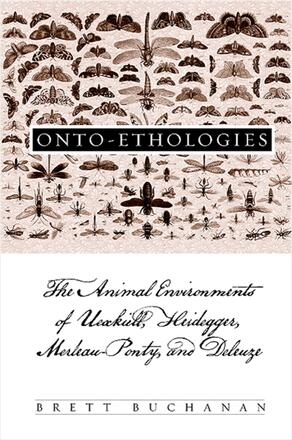
Onto-Ethologies
The Animal Environments of Uexkull, Heidegger, Merleau-Ponty, and Deleuze
Alternative formats available from:
Examines the significance of animal environments in contemporary continental thought.
Description
German biologist Jakob von Uexküll focused on how an animal, through its behavioral relations, both impacts and is impacted by its own unique environment. Onto-Ethologies traces the influence of Uexküll's ideas on the thought of Martin Heidegger, Maurice Merleau-Ponty, and Gilles Deleuze, as they explore how animal behavior might be said to approximate, but also differ from, human behavior. It is the relation between animal and environment that interests Heidegger, Merleau-Ponty, and Deleuze, and yet it is the differences in their approach to Uexküll (and to concepts such as world, body, and affect) that prove so fascinating. This book explores the ramifications of these encounters, including how animal life both broadens and deepens the ontological significance of their respective philosophies.
Brett Buchanan is Assistant Professor of Philosophy at Laurentian University.
Reviews
"Brett Buchanan's Onto-Ethologies, which takes on the crucial task of elucidating the philosophical import of some Uexküllian concepts and tracking their fate in the work of three major later philosophers, is … both welcome and long overdue. " — Symposium
"…this is a subtle book, a welcome engagement with a renewed focus on certain strands of biophilosophies of the twentieth century, with a particular focus on animals at a time when the so-called 'animal question' is moving through a whole ream of different disciplines. " — Radical Philosophy
"Most interesting, perhaps, is Buchanan's conscious attempt to bridge continental philosophy with the sciences … This book will likely prove exciting for those interested in the environmental thinking of Heidegger, Merleau-Ponty, and Deleuze. " — Environmental Philosophy